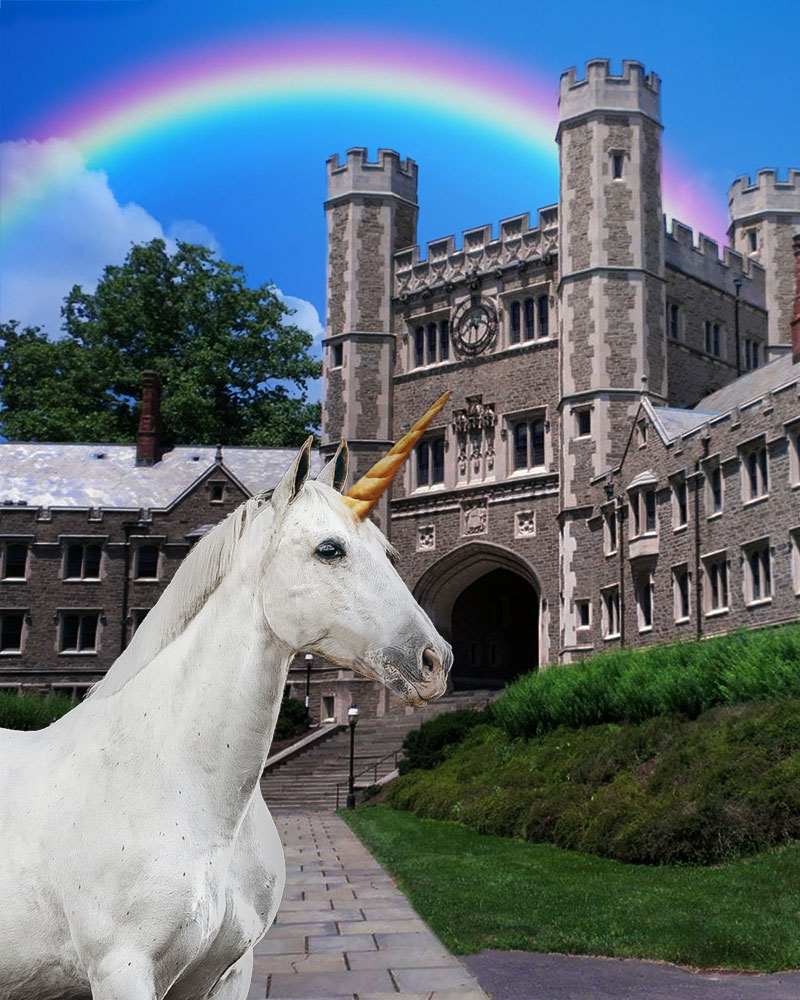Think (2)
(part two of three)
I have a brother-in-law who has always surrounded himself with books. For him, the life of the mind is the only life worth living. During family visits, I would occasionally join in late-night philosophical and political discussions with him and his grown children, and they appreciated having my voice in the mix. But one night, I made the mistake of admitting that I got as much pleasure out of a glass of good whiskey as I did out of a good book. At that moment, I fell so far in my brother-in-law’s estimation that I could practically feel the temperature drop.
I was not surprised. Years before, I’d had a similar experience as a student at Princeton. Under a tree on a warm spring day, I fell into a discussion with a graduate teaching assistant who had found my work competent but completely lacking in inspiration. He asked me what I wanted to get out of life, and I replied that I just wanted to find happiness.
“Happiness!?” he said, nearly spitting out his cigar. “Where do you expect to find it, under a rock? Happiness comes from engaging deeply with something. Don’t you have any intellectual curiosity?”
Well, of course I had curiosity, but it had always driven me to find out a little bit about everything, without necessarily caring about the details. I wanted to enjoy my life. I wasn’t convinced that the road to fulfillment involved knowing more things.
“Then why are you at Princeton, of all places?” the TA asked.
It was a very good question. I’d always done well in school, but it had never been for love of the subject matter. As someone who was physically awkward and socially inept, I’d always found that being a good student was my only available route to acceptance.
Getting high grades had won me the grudging respect of my peers, supportive attention from my teachers, and expressions of love from my parents. And fortunately — through the early years of high school, at least — academic achievement came easily to me. I rarely took notes or studied for a test. Even if I didn’t understand something, my writing skills were good enough that I was able to sound like I understood it.
But when I got to my senior year in high school, the difficulty level of the coursework finally caught up to my ability, and I found myself having to struggle just like “ordinary” students. It wasn’t a motivational experience. There was nothing I wanted to know badly enough that I was willing to work at it.
Fortunately, by then I’d already accumulated a scholastic record that was good enough to get me into a top-tier college. I applied to Princeton because my parents insisted that I try for at least one Ivy League school, but I had no intention of going there. I was sure the students would be cold and stuck-up, and it seemed unlikely that I’d be able to fake my way through the coursework. I procrastinated shamelessly on the application and neglected to apply for the optional in-person interview. I subconsciously hoped that if I ignored Princeton, it would go away.
Despite my best efforts, the Princeton admissions office chose to accept me. At that point, my parents began an all-out campaign to protect me from my own sluggardliness. Their son had an opportunity to attend one of the top schools in the country — an opportunity they’d never had — and they’d be damned if they were going to let me blow it. When I showed no inclination to visit the Princeton campus, my mother dragged me to the Port Authority in New York and deposited me on a bus to central New Jersey.
Spring that year had been cold and rainy, and I’d viewed a number of other schools through a chilly, gray mist. But the day I visited Princeton, the sun shone brightly, and a warm breeze stirred the magnolia blossoms. The campus seemed like a mythic kingdom. I instantly fell in love with its Gothic architecture, its green courtyards, and its wooded sanctuaries. I chatted with a number of students who seemed warm, genuine, and astonishingly normal. I took a campus tour, and when we walked into Nassau Hall — the school’s oldest building, which had once housed the entire college — I felt my feet mold themselves to the rutted stone steps that had been worn down by generations of students walking on them. Suddenly, every other school I’d seen seemed temporary and insubstantial. I knew then that I needed to be part of that venerable chain of Princetonians.
My love for the history and physical beauty of the university never abated. Eventually, as a Princeton student, I trained to be a campus tour guide, and later became president of the student-run tour service. But my association with Princeton felt hollow without my engaging in the intellectual tradition was the main reason for the school’s existence. I was a student, but it was clear I’d never be a scholar.
(To be continued in part 3)

I can so relate to good grades as the only option for someone who is socially inept to have some kind of success. It was so insidious to get good grades simply for the sake of getting good grades. I was completely out of touch with what mattered to me and for a number of years couldn’t access the part of myself that could guide me in the direction of what I cared about. I look forward to reading part 3!